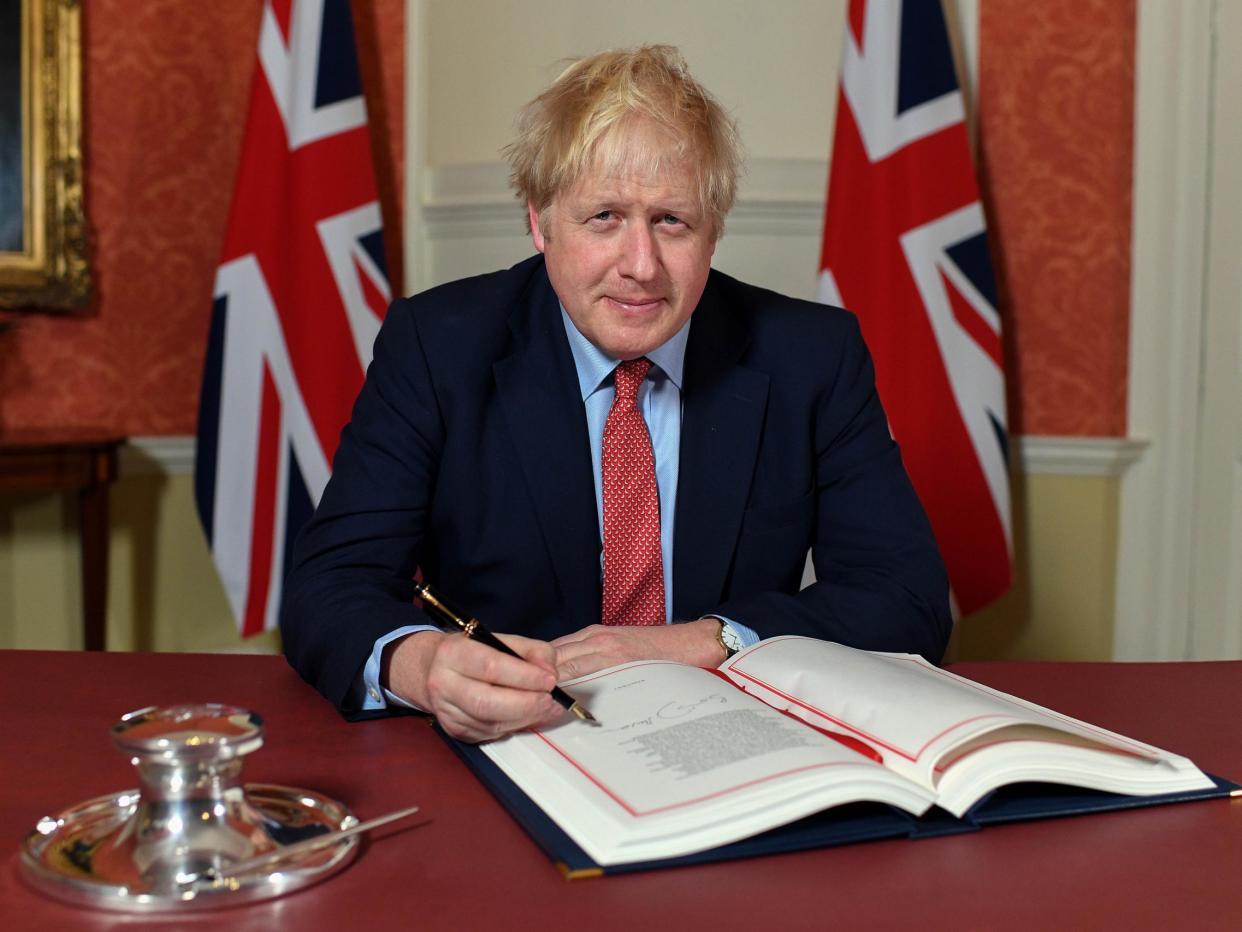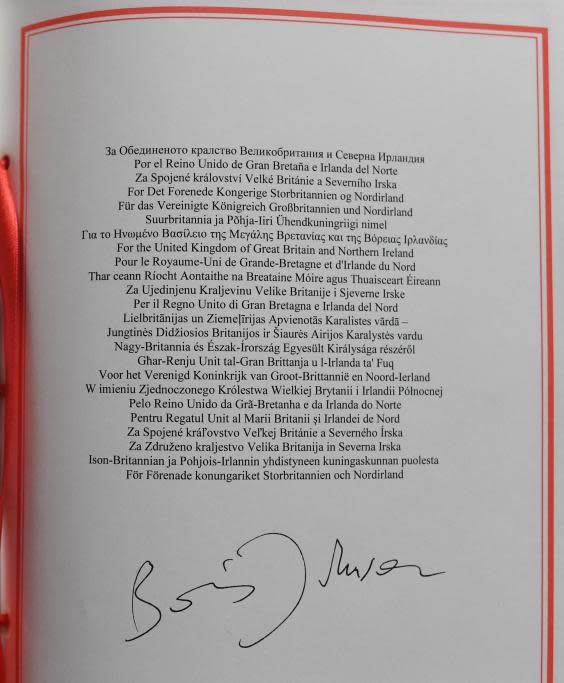Brexit: Boris Johnson signs withdrawal agreement to take UK out of EU

Boris Johnson has signed the withdrawal agreement to take the UK out of the European Union on 31 January.
The signing took place in 10 Downing Street on Friday afternoon, after the document was brought to London from Brussels, where the presidents of the European Council and European Commission had put their names to the treaty early in the morning.
The prime minister described the signing as “a fantastic moment” which would bring an end to more than three years of “argument and division” since the referendum vote to leave the EU in 2016.
But it leaves huge decisions still to be taken on the nature of the UK’s future relationship with the EU, with the prospect of a no-deal Brexit remaining very much on the table if the two sides cannot agree a trade deal by the extremely tight deadline of 31 December.
The formal signing of the agreement came 1,310 days after the narrow 52-48 victory for Leave in the referendum of 23 June 2016, and followed a tortuous and divisive period of negotiation and ratification which saw the resignations of prime ministers David Cameron and Theresa May, massive demonstrations in favour of a Final Say vote and a series of historic Commons defeats for the government.
All that now remains to be done before the UK can leave at 11pm next Friday is ratification by the European parliament, expected to take place on 29 January in Brussels.
After being signed by European Council president Charles Michel and European Commission president Ursula von der Leyen, the document was transported to London by officials of the EU and the UK representation in Brussels.
.@eucopresident Charles Michel and I have just signed the Agreement on the Withdrawal of the UK from the EU, opening the way for its ratification by the European Parliament. pic.twitter.com/rEqnUnJA2E
— Ursula von der Leyen (@vonderleyen)
The officials witnessed Mr Johnson inscribe his name in an anteroom outside No 10’s Cabinet Room, using a Parker fountain pen, as is traditional for ceremonial signings in Downing Street. The prime minister’s chief negotiator David Frost was present along with other Downing Street staff.
The original of the agreement was then being taken back to Brussels to be deposited in the archive containing all of the EU’s international treaties.
An officially certified copy will be produced and returned to London to be held by Downing Street.

Speaking after signing his name, Mr Johnson said: “The signing of the withdrawal agreement is a fantastic moment, which finally delivers the result of the 2016 referendum and brings to an end far too many years of argument and division.
“We can now move forward as one country – with a government focused upon delivering better public services, greater opportunity and unleashing the potential of every corner of our brilliant United Kingdom, while building a strong new relationship with the EU as friends and sovereign equals.”
The agreement signed by the PM requires the UK to pay around £30bn to the EU in settlement of its liabilities, to guarantee rights for European nationals living in Britain and to establish a customs border down the Irish Sea. Under its terms, Britain will remain subject to EU rules during a transition period lasting until the end of 2020, but will lose all representation on the bloc’s decision-making bodies from the end of January.
It does not settle the future relationship between the UK and the remaining 27 EU member states in areas such as trade and security, which will be the subject of intensive negotiations over the coming 11 months.
Although both sides have committed in a political declaration accompanying the treaty to reach a trade agreement by the end of 2020, Mr Johnson’s insistence that he will not extend talks beyond 31 December has opened up the possibility of a no-deal Brexit at the start of 2021, with disruption to transport and trade and the possible imposition of tariffs on UK exports.
After his predecessor Ms May was thwarted in her efforts to force her Brexit deal through parliament, Mr Johnson’s 80-seat majority in last month’s general election enabled him to rush it onto the statute books following just 11 days’ scrutiny in Westminster, receiving royal assent on Thursday.
While the Conservatives’ landslide election victory was taken as a mandate to deliver on their promise to “get Brexit done”, a majority of voters on 12 December backed parties seeking a confirmatory second referendum, in a clear indication that the country remains deeply divided over the wisdom of Brexit. This reflected opinion polls over the past three years – including one in The Independent less than two weeks ago – which have consistently recorded majorities wishing to remain in the EU.


